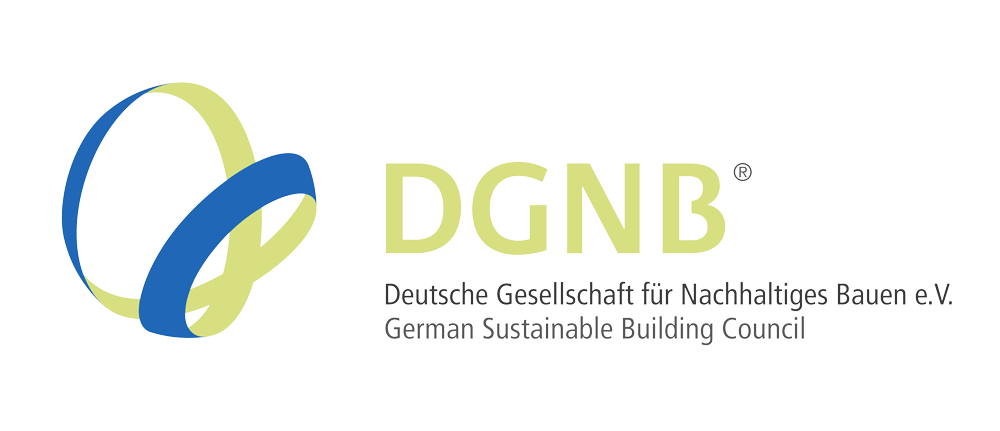General Terms and Conditions
§ 1 Scope of Terms
- All national and international deliveries, services and quotes from the supplier are based on these terms, which are also binding for future transactions, even if not explicitly expressed. Acceptance of the deliverable or service– in whole or in part – implies agreement to these terms. Unless specifically approved by the supplier additional terms introduced by the buyer will not be recognised.
- Additional agreements between buyer and supplier for the purpose of executing a project must be in writing.
- If in certain cases individual regulations prove to be invalid, the remaining terms of the agreement remain in force.
§ 2 Contract terms and finalisation
- Supplier quotes are non-binding and without obligation. Notification of contract acceptance and all subsequent orders require written or teleprint confirmation by the supplier to become binding.
- Drawings, illustrations, measurements, weights or other data are only binding if they are specifically agreed to.
- Suppliers’ agents are not authorised to make additional verbal agreements or commitments beyond the contents of the contract.
§ 3 Prices
- Unless otherwise stated the supplier must adhere to the current price list issued to the importer. Prices listed in quotes are binding for 30 days from issue date of the quote. Prices listed in the order confirmation or the currently valid price list (attachment 1) are binding. Additional deliverables and services are charged extra.
- Unless otherwise agreed, prices are considered ex works, excluding freight, excise duty, customs, import duties, insurance, costs for special packaging and labelling, protectants, etc.
- If current import and export duties or other fees or freight costs for raw material increase after issue of the contract, prices will be adjusted to adjust such changes.
- If a change in the economic balance takes place to the disadvantage of the supplier within 4 months after contract issue, the supplier may cancel the contract free of penalties, unless the purchaser agrees to pay an adjusted price. Such changes include the balance between performance and payment, or the exchange rate of the Euro to the currency usually used to procure the required raw material.
§ 4 Delivery and service times
- Binding or non-binding delivery dates or schedules must be agreed to in writing.
- Terms of delivery commence upon receipt of all documentation required for the job, the down payment and on-time material orders, as previously agreed. If shipment cannot be made through no fault of the supplier, the declaration of dispatch readiness counts as timely delivery.
- The supplier is not liable for delays or cancellation of delivery or service based on Acts of God, e.g. labour action, lockout, actions by regulatory bodies at any related location. The supplier may accordingly extend the delivery schedule by the duration of the work disruption with a reasonable start-up time or may cancel the contract in part or in whole for unfulfilled contract deliverables.
- If the interruption lasts longer than 3 months, the buyer is entitled to cancel the contract for the unfulfilled deliverables after a reasonable time extension. The supplier may not claim redress payments in case of delivery schedule extension of its release of contract. The supplier may only claim such conditions, upon immediate notification to the buyer.
- If the supplier is responsible for non-adherence to contractually agreed terms and dates, or in case of a delay of delivery, the buyer is entitled to damages of 0.5% of the order value for each full week of the delay, up to a maximum of 5% of the invoice value of the deliverables and services affected by the delay. The buyer may claim additional redress damage only upon proof of gross negligence by the supplier.
- The supplier may make deliveries and provide services in whole or in stages.
- Obligations fulfilment by the buyer presupposes similar fulfilment of the obligations by the supplier.
- If the buyer is in default of acceptance, the supplier is entitled to claim damages for any resulting losses; upon occurrence of default the buyer assumes responsibility for coincidental deterioration and failure.
§ 5 Packaging, transport, transfer of liability
- Unless otherwise agreed the supplier selects packaging, mode of transport and transport route to the best of their ability.
- The supplier assumes liability upon exiting suppliers’ premises even with prepaid delivery. Buyer assumes responsibility for the goods upon dispatch readiness notice, if shipping is temporarily impossible through no fault of the supplier.
- If requested by the buyer in writing the merchandise will be insured against storage, breakage, transport and fire damage at their own cost.
§ 6 Warranty
- The supplier warrants its products to be free from any defect in manufacturing and material for a period of 6 months commencing from delivery date.
- Warranty as to certain attributes of the deliverable must form part of the order confirmation. Reference to technical standards is deemed description of the product.
- Deviations within reasonable tolerances not affecting technical quality, especially deviations in colour, density and consistency are permitted.
- Should the buyer fail to comply with the supplier’s operating and maintenance instructions, modify the product, or use non-approved operating materials, warranty claims become null and void, unless the buyer produces evidence, that the foregoing played no part in any warranty claim.
- The defect must be reported to the supplier immediately, not later than one week after receipt of the goods. Hidden faults not noticeable upon receipt of the goods must be disclosed to the supplier immediately within 3 months of receipt of the goods.
- Warranty is null and void if defect were noticed by the buyer or should have been noticed during proper inspection and the goods have been placed in use or were partially or in whole sold to third parties. The same applies if the goods were inspected by the buyer before shipping or if the buyer specifically denied testing or inspecting the goods.
- If the fault claim is substantiated, the supplier must replace or repair the faulty goods. Should the fail to fulfil these obligations, the buyer may decrease the good’s value after three weeks’ notice, either by reducing the purchasingprice or reversing the contract.
- If only individual goods or packaging within a delivery are defect, the buyer is not entitled to return the complete shipment or refuse future deliveries.
- Liability for normal wear and tear is excluded.
- Only the original purchaser may make liability and replacement claims; these are not transferable.
- The preceding sections contain solely a warranty for goods and exclude all other claims, especially indirect damage, but are considered consequential losses, unless the supplier and his employees can be shown to have acted with gross negligence. This does not apply to claims for damages from failure of goods to meet described attributes intended to protect the buyer from consequential losses.
§ 7 Goods title
- The goods remain the property of the supplier until full payment is received from the buyer. In case of contract breach (especially delayed payment) by the buyer, the supplier has the right to repossess the goods; the buyer is obliged to return such goods. Unless otherwise agreed, return of the goods to the supplier does not constitute contract cancellation, unless the terms stipulated in the instalment act are applied. On the contrary, garnishee of goods for the supplier in all cases is deemed to be a contract cancellation.
In case of garnishee or other actions by third parties, the buyer must inform the supplier immediately about all requirements for legal action based on section 771 ZPO.
In case third party is not able to retrieve costs resulting from a suit based on section 771 ZPO in or out of court, the buyer is liable for any loss incurred by the supplier. - Manufacturing or alteration of goods by the buyer is always done for the supplier. If the goods are processed with goods not belonging to the supplier, the supplier earns a shared ownership in the new product in relation to the final invoicing amount of the proviso goods and other goods during manufacturing; the same applies to goods manufactured.
- The buyer is entitled to sell the delivered goods through proper channels, thereby conveying all current buyer’s receivables relating to the invoiced final amount created from resale or from third parties, without regard to whether or not the goods were sold processed. The buyer is also entitled to collect this debt after the transfer.
The power to collect receivables remains unchanged; however the supplier commits itself not to collect receivables so long as the buyer duly fulfils its liabilities and is not in arrears of payment. In this case the supplier may request notification from the buyer of the assigned claim and the debtor, including all required information, documentation and to inform the debtor (third party) about the assignment of the claim.
- If the goods are mixed inextricably with goods not belonging to the supplier, the supplier earns a shared ownership in the new product in relation to the final invoicing amount of the proviso goods and other goods during manufacturing. If the process resulted in the buyer’s goods being the main goods the buyer assigns partial property rights to the supplier and holds the sole or partial property rights on the suppliers’ behalf.
- The preceding assignment of title from the supplier also applies to claims that the buyer obtains from a third party involving real estate. The assignment rule also applies for processed, modified and mixed proviso goods.
- The supplier agrees to release the claims against the buyer, as long as they are not only temporarily used for securing debt; especially if its value does not exceed 20% of the securable and unpaid claims.
§ 8 Payment
- Unless otherwise agreed, the contractually determined payment terms and conditions apply.
The supplier is entitled to balance older outstanding invoices to the buyer with payments, even if buyer’s regulations do not conform to this. The supplier will inform the buyer about such accounting steps.
Upon receiving payment for a current delivery the supplier is entitled to deduct from such payment any accumulated costs and interest arising from previous outstanding payments.
- A payment is considered to have been processed, when the supplier has access to the funds. In case of cheque payment, the payment is considered made, when such cheque has been cashed.
- In case of payment arrears by the buyer, the supplier is authorised to charge interest at a rate of prime (Deutsche Bundesbank) plus 2%. The interest may be set lower if the buyer can show extenuating circumstances.
- If the credit rating of the buyer appears to have deteriorated, especially in case of a returned cheque or stopped payment, or if the supplier obtains other suitable reasons, the supplier is authorised to invoice the complete outstanding balance, even if he accepted cheques.
In this case the supplier is also entitled to demand prepayment or collateral security for deliveries.
- The buyer may only offset, retain or lower the value of the goods (even when notice of defect or counter claims are made), if the counterclaims are legal and undisputed. The supplier is also authorised to retain goods in case of counterclaims from the same contract.
§ 9 Material modifications
The supplier reserves the right to modify the makeup of the goods, but is not obliged to apply these changes to goods already delivered.
§ 10 Limits of liability
Damage claims resulting from breach of contract, incorrect contract contents and from unauthorized actions against the supplier and his lawful agents are not permitted, unless gross negligence can be proven. This also applies to claims based on non-performance, but only up to and including replacement of immediate or shortage damages, unless the liability is based on expressed assurance to indemnify the buyer from such losses. Liability is limited to the damage estimated at date of contract issue.
The supplier is only liable for premeditated and gross negligence of non-managerial agents, if they breach an essential contract stipulation.
§ 11 Place of delivery, place of jurisdiction, applicable right
- The law of the Federal Republic of Germany applies for these terms and conditions and all legal interaction between the supplier and the buyer. Application of the UN agreement concerning contracts and for international purchasing is exempted.
- Place of delivery “ex works” is the location of the source plant.
- Place of jurisdiction is Göppingen; this applies also for document, draft and cheque processing. The supplier retains the right to take legal action against the buyer at its own place of jurisdiction.
 schnelle Lieferung
schnelle Lieferung sichere Bestellung
sichere Bestellung alle gängigen
alle gängigen Hilfe und Support
Hilfe und Support







